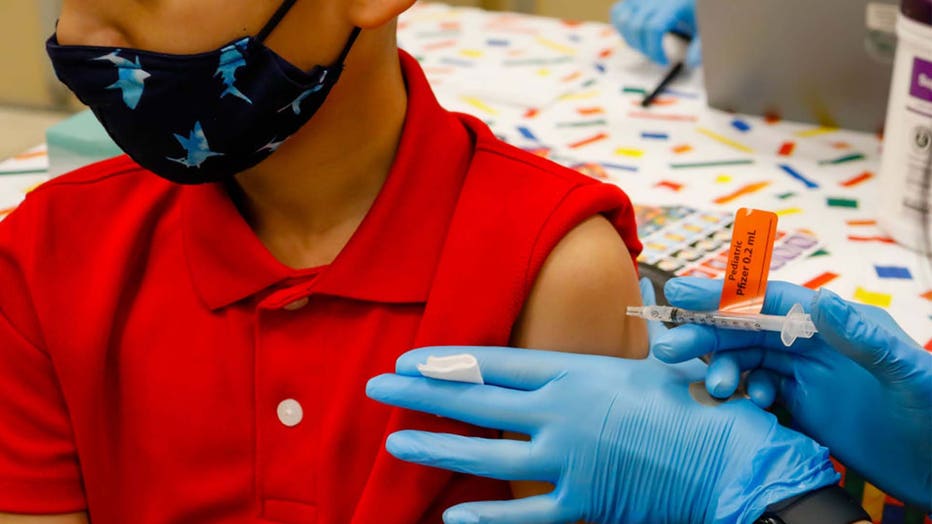Detroit parents more hesitant of COVID-19 vaccine than non-parents
DETROIT (FOX 2) - Studies show that Detroit parents are less likely to vaccinate themselves, than Detroiters who are not parents, leading to low vaccination rates in kids.
That's according to a new study out of the University of Michigan, which reported a strong link between a parent's vaccination status and the vaccination status of their kids. The survey was administered by the Detroit Metro Area Communities (DMACS), and says that less than 50% of adults in Detroit with kids under the age of 18, reported having been vaccinated, compared to 75% of adults without kids.
"Recognizing the link between parents' and kids' vaccination status offers important insight as Michigan ramps up vaccination efforts targeted at children," said Lydia Wileden, a doctoral candidate at U-M, and research associate at DMACS.
"Overcoming families' vaccine hesitancy is absolutely critical as schools, sports, and youth programs work to provide safe spaces for children to learn and grow. Our findings clarify, in part, which youth are not getting COVID-19 vaccines and why," added Wileden.
Specifically for parents of kids aged 12 to 17 years old, those who are unvaccinated are 22 times less likely to vaccinate their kids than parents who already got the COVID-19 vaccine

FILE - A child receives a dose of the Pfizer-BioNTech COVID-19 vaccine at an elementary school vaccination site for children ages 5 to 11-year-old. (Eva Marie Uzcategui/Bloomberg via Getty Images)
While children age 5 to 11 had only recently become eligible for the Pfizer COVID-19 vaccine when the survey was released, it showed a strong link between a parent's vaccination status and their likelihood of obtaining one for their child. According to the survey, 67% of parents unvaccinated were uncomfortable with getting their child vaccinated, compared to 30% of parents who had been vaccinated.
Researchers say that understanding the link between parents and their kids, is key to understanding the hesitancy of receiving a COVID-19 vaccine.
Notably, there was no evidence to show that race or ethnicity played a role in the differences in vaccination rates among parents. Roughly half of all parents, regardless of racial or ethnic identity, report being vaccinated.
RELATED: Michigan task force on racial disparities releases final report
Unvaccinated parents most frequently cited potential side effects of the shots for not getting them. About 75% said they had doubts about the effectiveness of the vaccine. The survey also found that hesitancy was not linked to the seriousness of COVID-19.
The survey was given to 1,900 Detroit households between November 3 and December 15, 2021. DMACS has been surveying representative samples of Detroit households since 2016, and matched that to Detroit's population and demographics, to represent the city as a whole.
Similar to the results reported in August 2021, parents continue to report feeling significantly less safe engaging in many social activities during the COVID-19 pandemic than other adults. Just 66% of parents feel safe going grocery shopping and 59% feel safe going to the doctor, compared to 82% and 80% of other adults, respectively.
Importantly, vaccination rates among adults in Detroit are still changing. Since June 2021, 28%, who had not been vaccinated, have since been reviewed their vaccinate. The DMACS is currently exploring how vaccination rates among adults in Detroit have changed over time.

